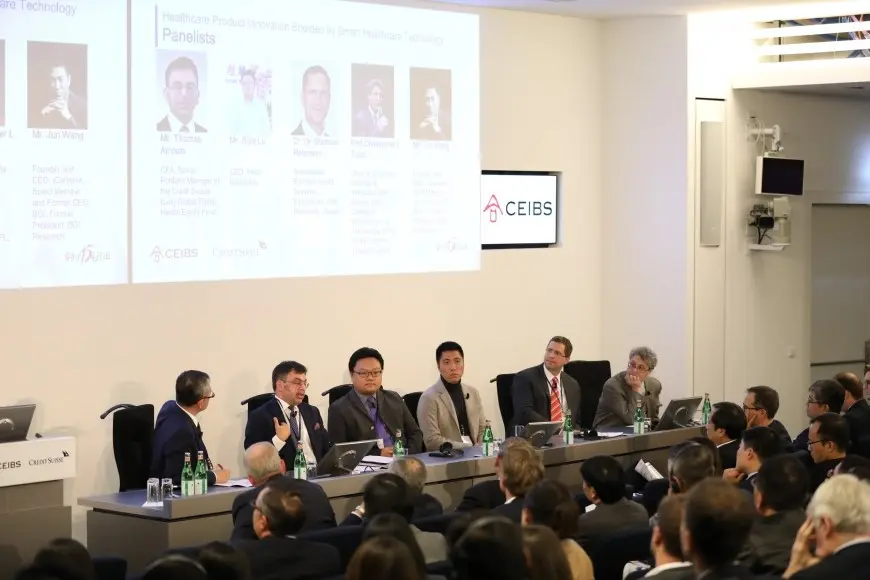4th Europe Forum about “Smart Health"
”Life can be computed and digitalized”, said Dr. Wang Jun – Founder and CEO of iCarbonX, a health related big Omics data platform.

Have you ever imagined this before: wearing a Fitbit-style appliance, which measures your steps, heart rate, and sleep patterns; monitors the changing levels of metabolites produced by the body as it processes food; combined with your DNA sequence; added with regular blood tests to measure various proteins and enzymes, heart data from an EKG, and information from your medical history…
All these huge amount of data are gathered and processed by advanced AI so that new signals of health, decease and ageing can be detected. The sophisticated model will help you to predict tendency of certain types of decease, take preventive measure to improve your health, postpone the process of ageing, ultimately to live happier and longer. The shocking part is that the AI platform knows then every details through these data about you, from your physical conditions to your behavior patterns, further to your mood and mental movements. With the total control of your own health condition, your life style could also be completely manipulated – depending on who owns these data…
These were part of the topics mentioned at the 4th Europe Forum about “Smart Health: Reshaping the Health Industry in China and Switzerland” held in Zurich on 24. October 2018. Experts and entrepreneurs in related area from both countries exemplified with concrete examples that smart healthcare services have become a reality, and will bring about profound changes in terms of diagnostic results, operational models, and personalized medicine.
However, experts agree that the barriers to implement the smart healthcare do not lie in technological possibilities. The societal and ethical aspects must be taken into account. It seems that the smart solutions in health care could be implemented and expanded must faster in China then Switzerland. Besides regulatory framework of healthcare industry, the cultural differences such as acceptance of new technology, community influence as well as sensitivity toward personal data etc. are playing important roles.
We are going to follow the further development trends of smart healthcare products and services in Switzerland and China, and hope to enable knowledge sharing and promote cooperation of both countries in this regard.